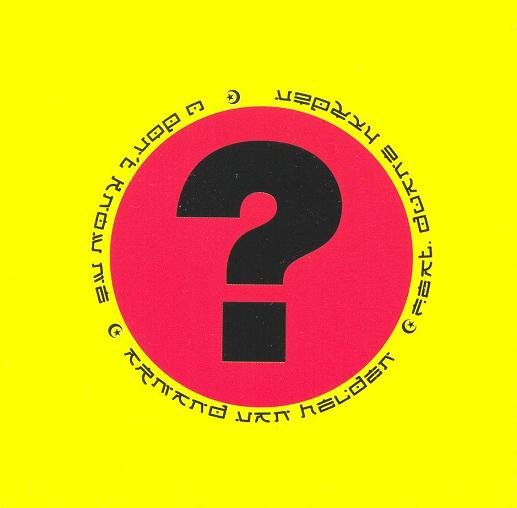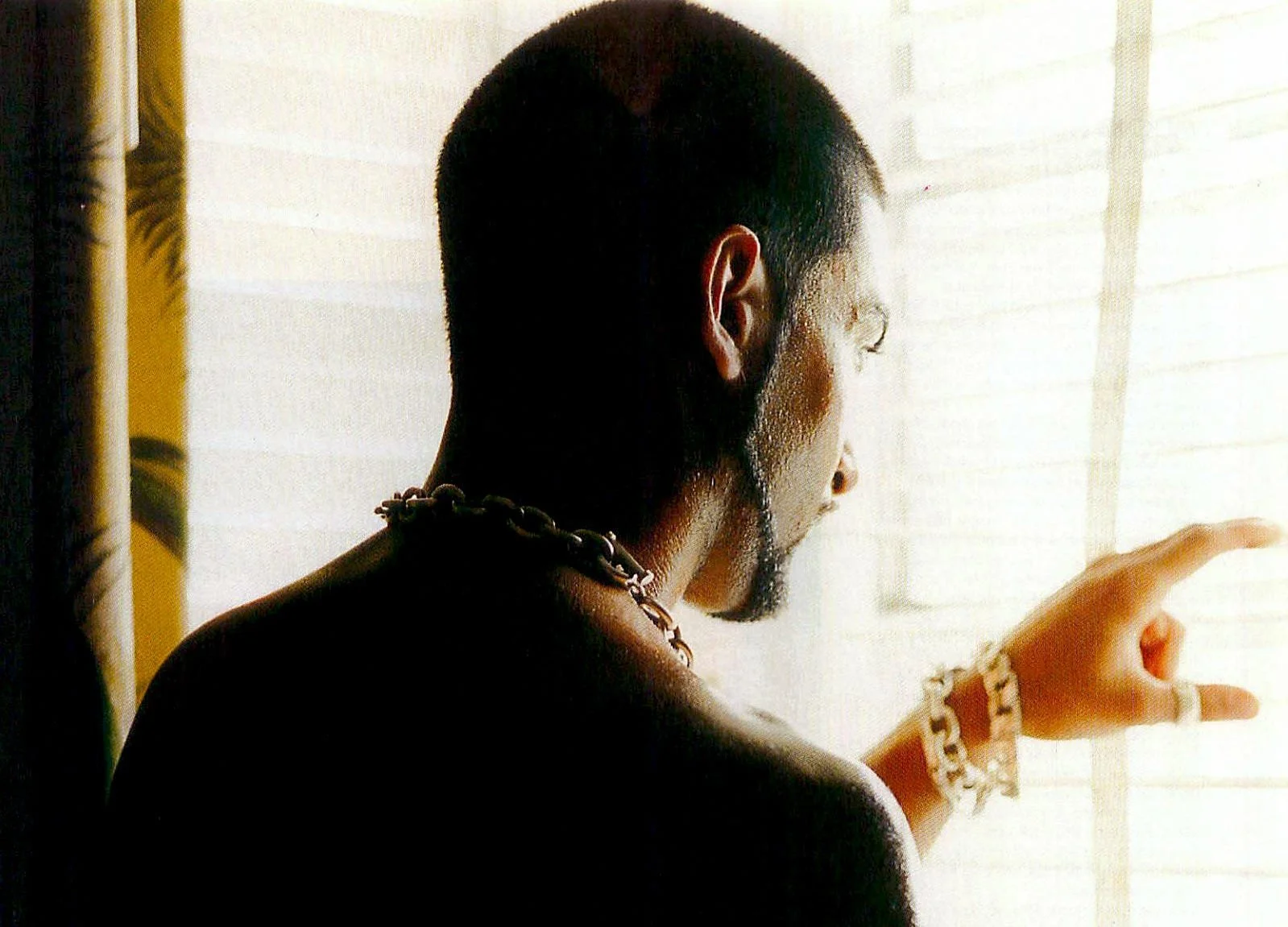“You Don’t Know Me” (1998): Armand Van Helden’s House Anthem of Independence
Midnight, late 1998 – A packed warehouse-turned-club throbs in the heart of the city. Laser lights pierce through a haze of smoke and sweat. The DJ kills the beat for a split second, and an anticipatory hush sweeps the dance floor. Then it hits: a cascade of lush disco strings loops from the speakers, shimmering and dramatic. The crowd roars in recognition as a soulful voice declares, “You don’t even know me!” In an instant, euphoria erupts. Strangers throw their hands up together, united by the groove. It feels like a movie scene – a climactic moment where sound, emotion, and movement fuse. The track surging through the speakers is Armand Van Helden’s “You Don’t Know Me,” and it has just set the night on fire.
Figure: The cover art of “U Don’t Know Me” was as bold and enigmatic as the song itself – a bright yellow backdrop emblazoned with a giant question mark. It was a fitting symbol for a track that challenged listeners and defied expectations, asking the world implicitly: do you really know what I’m about?
Flashback: House Music’s 1998 Moment and Van Helden’s Rise
By the late 1990s, club culture had swelled into a thriving underground force on the verge of bursting into the mainstream. The world was bracing for Y2K and saturated with pop, boy bands, and nu-metal, while dance music still lurked largely in the shadows . Yet in clubs from New York to London, house music was evolving rapidly – splintering into new subgenres and reviving its disco roots. This was the era that gave us crossover dance hits like The Prodigy’s “Firestarter” and Darude’s “Sandstorm,” hinting at the wider breakthrough to come . In this fertile scene, Armand Van Helden was carving out a unique space for himself.
Armand Van Helden entered 1998 already a respected name in the DJ and producer circuit. A Boston-born, New York-based house wizard, he had been honing his craft through the early ’90s, making waves with his debut club tracks and prolific remixes. His 1994 breakout single “Witch Doktor” – with its siren-like synths and tribal energy – had “dominated dance floors around the world,” establishing his ability to deliver dancefloor mayhem . By 1996, Van Helden’s ferocious remix of Tori Amos’s “Professional Widow” became a global sensation, widely credited with introducing the rough-edged speed garage sound to the masses . That uncommissioned remix even shot to #1 on the UK charts in early 1997 , cementing his reputation as a remixer extraordinaire. House aficionados revered him for infusing tracks with chunky basslines, hip-hop attitude, and an anything-goes approach. (He once quipped that he saw himself as “the enemy of house in a way,” always injecting rock or rap sensibilities into the genre .) By 1998 he’d earned a Grammy nomination for Remixer of the Year and had crafted club hits of his own like “The Funk Phenomena,” proving his prowess beyond the remix booth .
All of this set the stage for “You Don’t Know Me.” In 1998, Van Helden was preparing his third album, 2 Future 4 U, at a time when French filter-house and disco revivalism were in full swing on European dancefloors. (Stardust’s “Music Sounds Better With You,” another strings-laden house track, had just exploded that summer.) Van Helden was part of the same movement of DJs bridging the underground and the mainstream. Still, nobody could have predicted that his next single – built from an old disco sample and featuring an impassioned vocal by a then-unknown singer, Duane Harden – would become a global anthem. “You Don’t Know Me” was released in January 1999, right on the cusp of the new millennium, and it caught lightning in a bottle. It rocketed to number one on the UK Singles Chart in February 1999, knocking aside pop acts and firmly planting house music at the top of the pops . The song’s timing was perfect: it arrived as club culture was boiling over into everyday culture, bringing a defiant underground spirit right to the charts.


